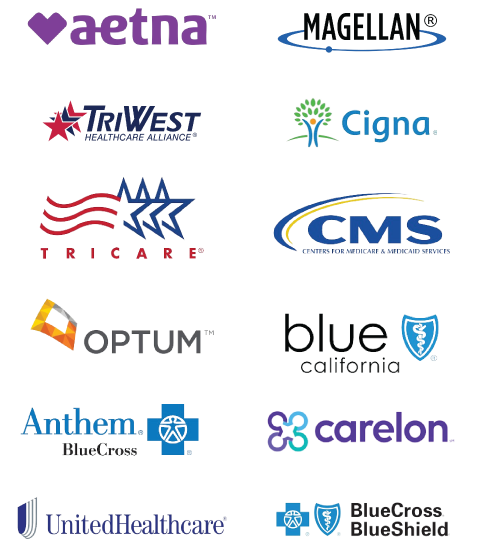
An estimated 40.4 million Americans struggle with drug or alcohol use disorder. One in 10 of us will struggle with a substance use disorder at some point in our lives. Chances are, you know one or more people fighting a silent or not-so-silent battle with drug or alcohol addiction. In fact, almost half of all Americans have a family member who is addicted. Those problems can slip by relatively unnoticed at first. But, once you realize how much your loved one is using, how much it’s affecting their behavior, and how much it’s hurting them and everyone around them, you obviously want to get them help.
How do you do it? Often, simply talking to people is not enough. Addicts are good at denial. It’s part of being an addict. Some of us will drink constantly and still delude ourselves into thinking we don’t have a problem. The intervention is the next step, where you sit down with your loved ones and force your family member or friend to acknowledge their addiction and how much it’s hurting them and the people around them.
Pulling that off requires planning, consideration, and the right motivations. This article will help you decide when and how to plan that intervention, so you can get your loved one into treatment.
Plan When to Stage the Intervention
In most cases, you’ll only ever really get to do an intervention once. That means it should be a last resort option. If you haven’t tried sitting down and having calm conversations, discussing substance abuse, sharing about their substance use, and offering help – you should try that first.
It’s also important to consider your loved one. Are they at a point where an intervention is likely to do anything? If they’re using at a rate that is worrying but not dangerous, they might be less open to taking accountability and realizing that they are hurting themselves. Are they extremely deep in denial? If so, do you think an intervention will reach them?
If your loved one isn’t responding well to talks, to people noticing that they drink or use a lot, or to pleas to use less – it might be time to stage an intervention. But, getting the timing right almost always means waiting until it’s an act of desperation.
Having Treatment Ready
If you stage an intervention, you have to be prepared to get your loved one into treatment and as quickly as possible. Often, rehab centers will work with you to take someone within 24 hours of an approval. Many even have intervention professionals or consultants who can help you set up, stage, and deliver your intervention.
Here, it’s extremely important that you know where you’re sending your loved one, what to do to get them there, and that they are ready to take them. The longer you wait between intervention and getting your loved one into treatment, the less likely they are to go. And, a second intervention is going to be much less effective.
What does that mean for you? It means finding a rehab facility before staging the intervention. It means going through basic setup, checking with insurance, and getting the treatment facility to sign off on your loved one going if the intervention is successful. You probably also want to have a backup plan in case the facility is full. E.g., getting them into a halfway house or sober home until they can go to treatment, getting them into outpatient treatment until a place opens up with residential treatment, etc.
Inviting the Right People
The right people to invite to an intervention aren’t always close family members. If you have or had a good relationship, then yes. However, chances are, partners, close friends, and even colleagues are also a good choice. Your loved one has to trust and care about the people present. Making a list of people and inviting them can be difficult. However, this list should always include your loved one’s closest circle of friends and family.

Choosing a Location
It’s important that you hold an intervention in a safe, quiet, and private space. You’d never want to stage an intervention somewhere public like a park or a restaurant because this is emotional, confrontational, and can result in anger, tears, and people being very upset. Choose a space at home or at your doctor or therapist’s office, where you won’t be disturbed for a few hours.
Planning What to Say
Saying the right things is important to an intervention. It is most often this preparation that is more important than anything else. Here, you might want advice from a professional intervention specialist. On the other hand, you might want to speak as honestly and as from the heart as possible.
Consider:
- Everyone’s messages have to align
- No messages should be blaming or judging the person using
- Messaging should center around worry, concern for your loved one, missing your relationship, and struggling yourself. Most professionals recommend using “I” rather than “You” phrases. E.g., “I miss you because you’re never available to spend time with me anymore” rather than, “You’re never around anymore”. This centers the focus on how you feel and the part that is likely to touch your loved one.
- Stay calm and be prepared to face arguments, denial, or even anger. People react in very different ways to interventions.
Finally, it’s important that you know what to say if your loved one refuses the intervention. Often, steps here are crucial. You might want to offer an ultimatum, “go to therapy and get help or we will stop supporting you”. That might be too harsh and could put your loved one in danger if you don’t succeed. Setting boundaries like refusing money, car rides, or help that isn’t a place to sleep and food to eat can be considerable. But, your loved one is likely to get angry about these kinds of restrictions.
Getting Help
If you want to get your loved one into treatment, most addiction treatment centers offer counselors who can offer advice. Some also offer therapists specialized in interventions. That can help you to hone your message, your timing, and your behavior to ensure you can get your loved one to acknowledge they need help. And, from there, it’s often much easier to actually get them into treatment.
Eventually, treatment is the end goal of any intervention. So, if your loved one is willing to go for any other reason, it’s usually a good idea to try that first. After all, an intervention is a last resort. Good luck getting your loved one into treatment.
If you or you loved one need help with mental health treatment, drug rehab, or alcohol rehab Compassion Recovery Center is here to help. Contact us to ask about our mental health programs and how we can support your specific requirements as you move into treatment.






